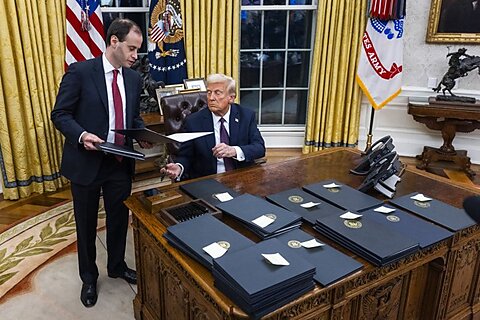Donald Trump’s most infamous pardons are those he issued to January 6 rioters, which extended clemency to every wrongdoer, no matter how violent or premeditated the conduct. (Here are my reasons for calling them infamous.) Less widely discussed has been his November 7 order “granting pardons for certain offenses relating to the 2020 presidential election.” This order pardons by name some dozens of supporters who assisted Trump’s cause during and after 2020, many of whom supported his efforts to overturn the election by seeking certification of alternate slates of pretend electors.
The list of individual beneficiaries is just the start, however. Trump’s November 7 order goes on to pardon a broader class of unnamed persons for “conduct relating to the advice, creation, organization, execution, submission, support, voting, activities, participation in, or advocacy for or of any slate or proposed slate of Presidential electors, whether or not recognized by any State or State official, in connection with the 2020 Presidential Election, as well for any conduct relating to their efforts to expose voting fraud and vulnerabilities in the 2020 Presidential Election.”
Now Matthew Leiss, a man facing federal prosecution for voting twice in 2020 (once in Pennsylvania and once in Florida, and reportedly both times for Trump), says he’s covered by the pardon and should go free. What’s more, to judge from Derek Muller’s account, it looks like he’s got a pretty good case. After all, the pardon covers “all conduct relating to … voting … for or of any slate or proposed slate of Presidential electors,” and to cast a vote for president is to vote for just such a slate of electors.
It’s essential to note that Trump can pardon only federal crimes, not state crimes. Most voting-related crimes are prosecuted under state law, and states often prosecute double voting. The prosecution of Mr. Leiss happens to be federal, though, so he does stand to benefit from this reading.
The real irony (and perhaps silver lining) of the pardon’s amateurish drafting lies elsewhere. Trump and some MAGA allies are keen to prosecute local election administrators and officials who counted perfectly valid votes in ways they think somehow “rigged” the 2020 count. But, says Justin Levitt, such prosecutions would appear to be barred by the text of the proclamation, which grants a pardon for “conduct relating to … voting … for … any slate … of Presidential electors … in connection with the 2020 Presidential Election.” Running the election and processing the votes, like voting itself, certainly counts as “conduct relating to…voting.”
It’s true that one portion of the president’s proclamation singled out for impunity conduct that arose from Trump’s own approved motives for election meddling (“efforts to expose voting fraud and vulnerabilities”). But the connective language that links that passage to the main text (“as well for”) makes clear that the language does not operate to limit the sweep of the main list of actions being pardoned.
As a result, Trump’s careless drafting of pardons may have served to block one whole segment of his “Revenge Tour.” Oops!

